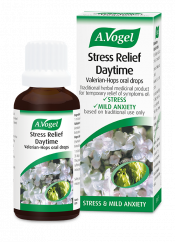An introduction to mental wellbeing
Mental wellbeing is affected by many factors, but some of the most common today are stress, anxiety and low mood. These unpleasant emotions are often interlinked.
For example, you may feel stressed about a looming deadline at work. The fear of not completing the task in time will make you feel anxious. The fact that you are now stressed and anxious makes it difficult for you to think about anything else, which in turn makes you feel a bit miserable.
The more miserable and anxious you feel, the less you are able to concentrate, which makes you stress more about the deadline. This in turn increases anxiety levels ... and so it goes on.
Does it seem that, in the good old days, we never experienced these feelings? Maybe it is a nostalgic view through rose tinted spectacles, but perhaps the readily increasing pace in which we are living and the extra busyness of life nowadays is taking its toll on us.
Continuous pressure to succeed does nothing to help us relax. Against us is a need to perform at our best, and to keep up with the ever increasing standards. What is this doing to us? It’s putting us under stress, making us anxious and leaving us with a low mood.
Stress
Stress is not an illness in itself. It tends to manifest itself by way of unpleasant symptoms, both physical and mental. These include the feeling of nervousness, a racing heartbeat and sharpening senses, as well as a feeling of being overwhelmed, irritable or restless. It occurs when we are put under too much pressure and we struggle to relax and react rationally.
Anxiety
Anxiety is the reaction to undue stress. It can be triggered by a wide range of circumstances including performing or speaking in public or social situations. Anxiety can be treated in a similar way to stress, and finding an effective management technique for you goes a long way towards easing your symptoms.
Low mood
Low mood is an emotion many people have experienced. It can come about for no apparent reason – we just wake up in the morning and feel a bit down or sad. Other times, there are identifiable reasons for you feeling the way you do. This is just part of the normal fluctuations of emotions which we experience.
What is important with low mood is to distinguish it from depression.
Depression
Depression is a medical condition in which the sufferer experiences feelings outwith the normal range of emotions. It is a serious condition which must be treated by a medical professional, particularly if accompanied by thoughts of suicide.
Understanding and treating
Having an understanding of these three conditions often helps us to tell if we are just having a bad day, or if we are indeed succumbing to the modern day illness of busyness. It is important to examine your symptoms carefully, as stress, anxiety and low mood may lead to more serious health conditions, including high blood pressure and heart problems. The good news is that they are all treatable, often through a combination of self-help techniques and herbal remedies, most commonly Valerian, Avena sativa and St. John’s Wort.
So take a deep breath and relax...








